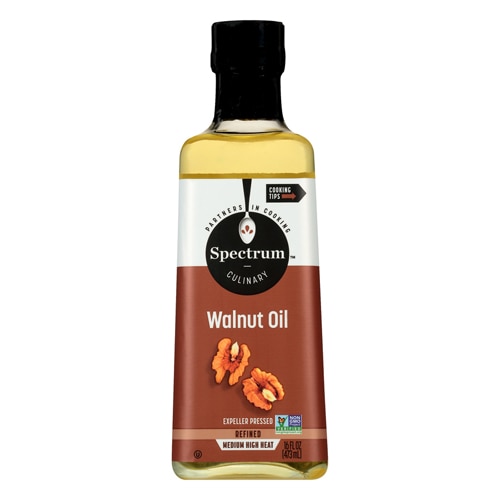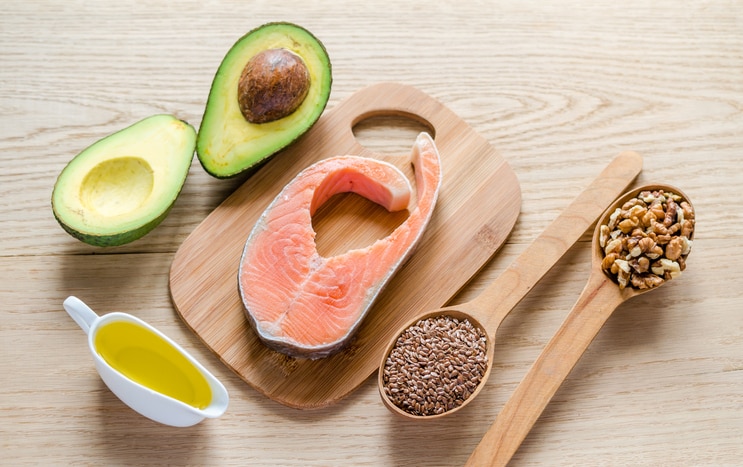The fats in your diet can support your health—or, they can compromise your health. To choose the healthiest fats, you need to know how to recognize the differences between “good” and “bad” fats and which are best to use, for example, in homemade salad dressings or for frying food. Let’s look at some common options, the effects that each have on your body and some basic guidelines you can follow for making the best choices.
Mono-unsaturated fats
Mono-unsaturaated fats are found in canola and olive oil. Research has shown that olive oil has properties that can help support cardiovascular health. You want to use these oils if you fry your food -- but be careful not to let the oil burn in the pan. Your best options are extra-virgin olive oil and cold-pressed canola oil, and it’s best to keep the bottles refrigerated.
Omega-3 fats
Found in flax seeds, walnuts, salmon, trout and tuna, omega-3s are considered the "friendliest" of fats. They can support your health by reducing inflammation and having positive effects on your cholesterol level. Flax oil and walnut oil are great in salad dressings, but they shouldn’t be used in cooking or otherwise heated under any circumstances.
Saturated fats
These are the classic “bad” fats, when they're derived from animal products. In this form, saturated fats are well known for their potential links to obesity, diabetes, cardiovascular disease and other conditions. Saturated fats can be found in pork, lamb, beef, turkey, chicken, dairy foods, and many other animal products.
To reduce your saturated fat intake, avoid butter and other fatty animal products, and choose nonfat dairy products. There are some exceptions; some types of saturated fats can be health-promoting. The saturated fats found in coconuts, for instance, may help support healthy weight maintenance and have other have beneficial, heart-healthy effects.
Omega-6 fats
Found in many common kinds of oil - including sesame, corn, soybean, peanut, sunflower seed, safflower, and cottonseed oils - omega-6 fats are all too prevalent in the standard American diet. If you consume them in excess, they can promote inflammation in your body.
To summarize, as a general rule you want to increase your intake of mono-unsaturated fats and omega-3 fats (such as fish oil) and reduce your consumption of saturated fats and omega-6 fats.
It’s also a good idea to avoid margarine and other hydrogenated oils, because these are produced from omega-6 fats that are highly processed. Their production process results in unhealthy trans-fats, which have been found to promote heart disease.
By avoiding these unhealthy fats, you can further support the health of your heart.




